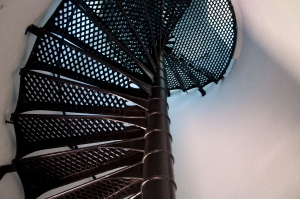

SEVERAL months ago we continued to comment about the departure of Hurd from HP. It happened under mysterious circumstances [1, 2, 3, 4]. A former Microsoft ally took his place after HP's new software chief had been appointed from Microsoft.
I liked webOS, HP’s Linux-based take on a tablet operating system. I thought it had a shot to be a tablet player. But, then, Leo Apotheker, HP’s new CEO, along with spinning off HP’s PC business, killed webOS. Was it because, as Apotheker said, the tablet effect is real and sales of the TouchPad are not meeting our expectations,” and that the TouchPad was quickly becoming a money pit? No, no it wasn’t.
Yes, webOS and the TouchPad were doing badly on the market. But, so what? A company the size of HP doesn’t get out of the consumer PC market and new tablets and spin around on a dime because it can’t be as “as cool as Apple.” No, it does so because Apotheker and his cronies had planned for months to try to transform HP into their old company, SAP, and go head to head not so much with IBM, but his old sparring partner, Oracle.
In the same year that Microsoft added cut and paste to its mobile feature set, HP added cut and run, announcing last week that it would no longer produce webOS hardware, then dumping its failed HP TouchPad tablet in a $99 fire sale. At the same time, the number-one PC maker signaled its intent to spin off, sell, and otherwise dump its Personal Systems Group—the division that makes all of its computers for business and consumer markets—within 12 to 18 months. Unless a buyer like Samsung is waiting in the wings already, that’s a long time to go without a mobile strategy.
Hewlett-Packard shares have slumped as investors respond to last week’s announcement of a radical shift in strategy.
From a high of US$32.59 on Thursday, shares fell to US$22.89 on Friday before closing at US$23.60.